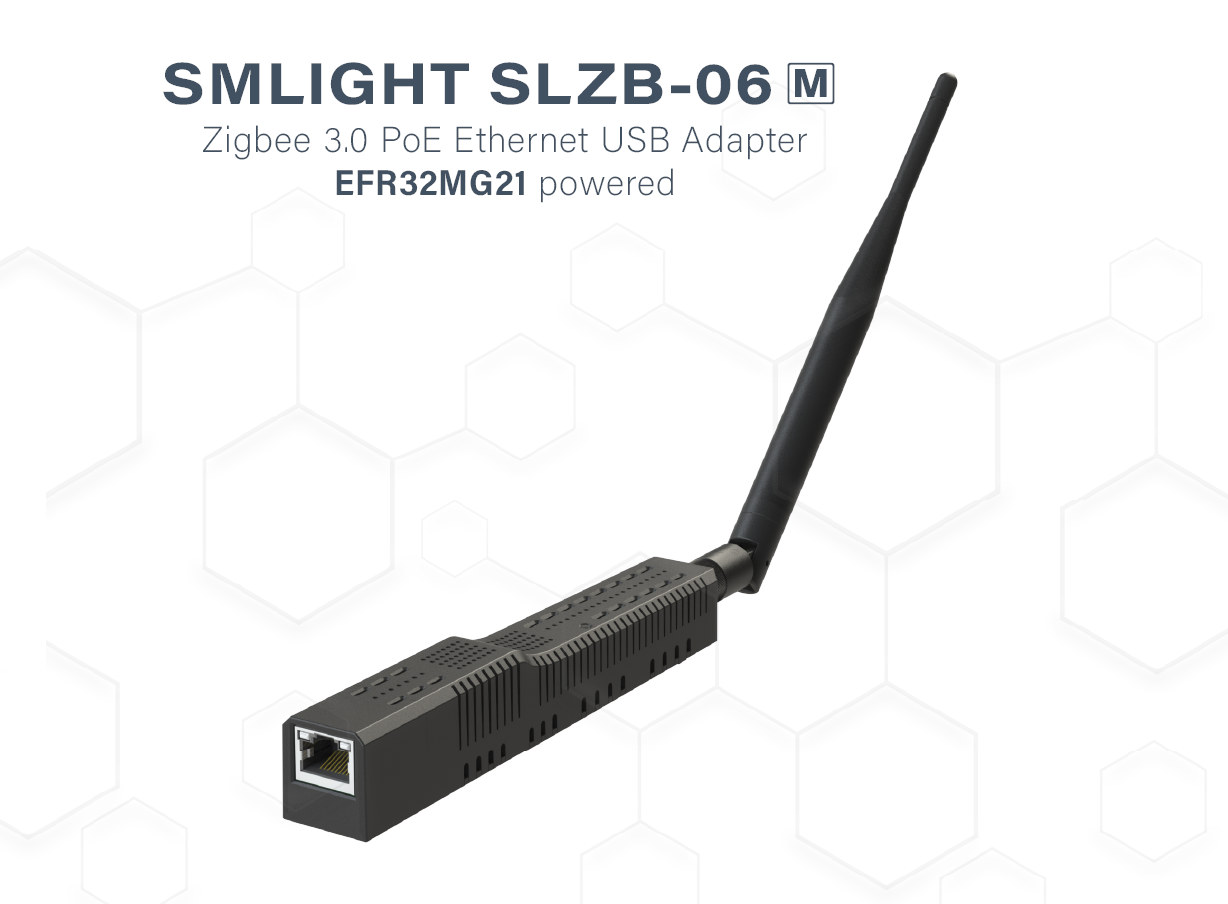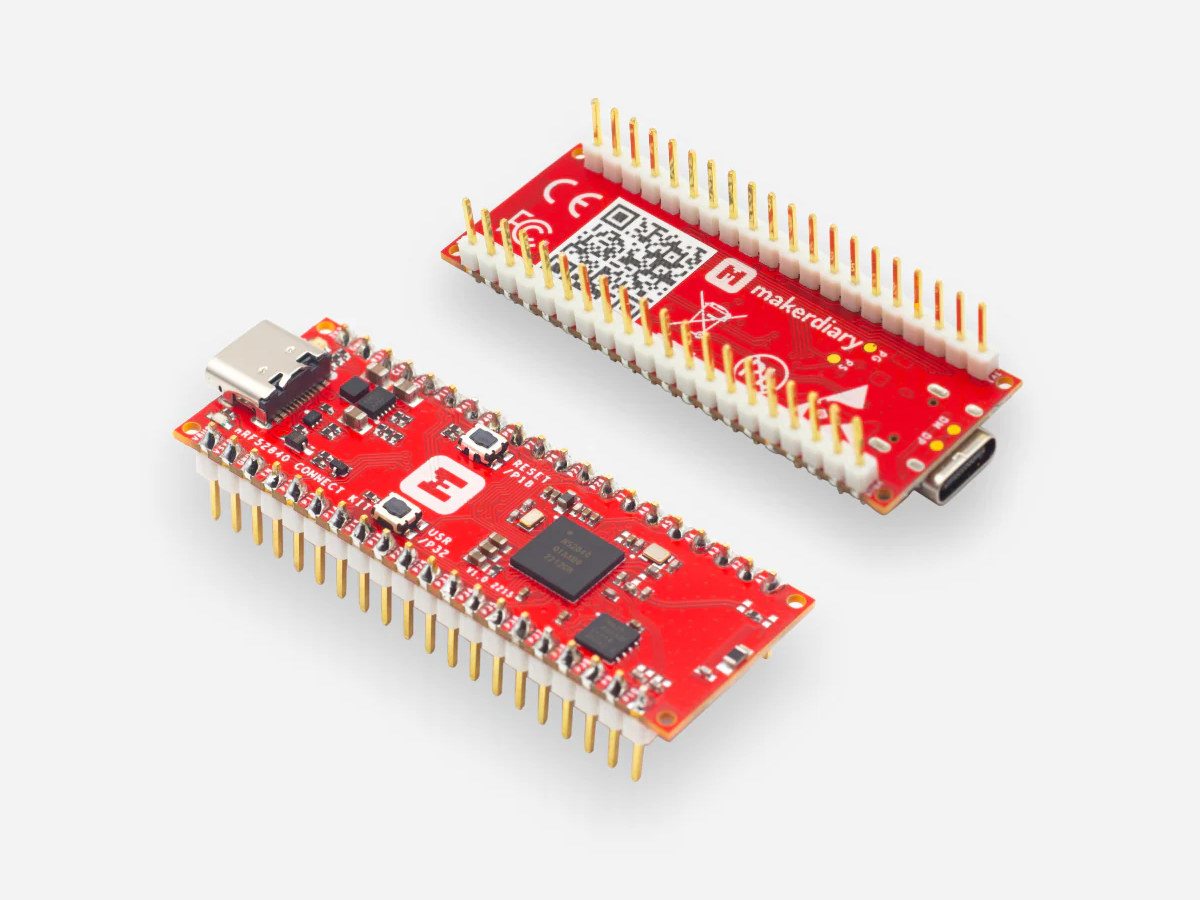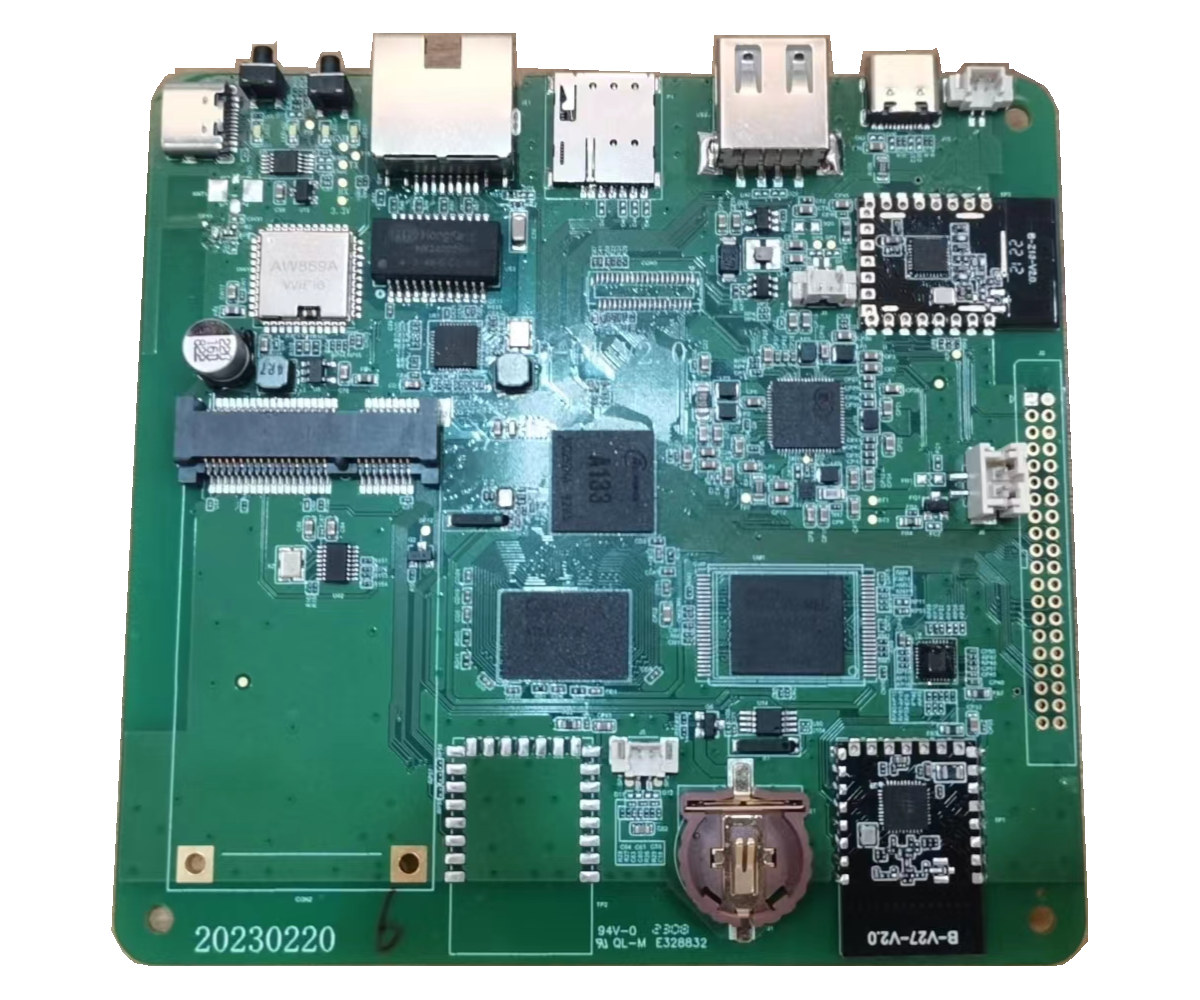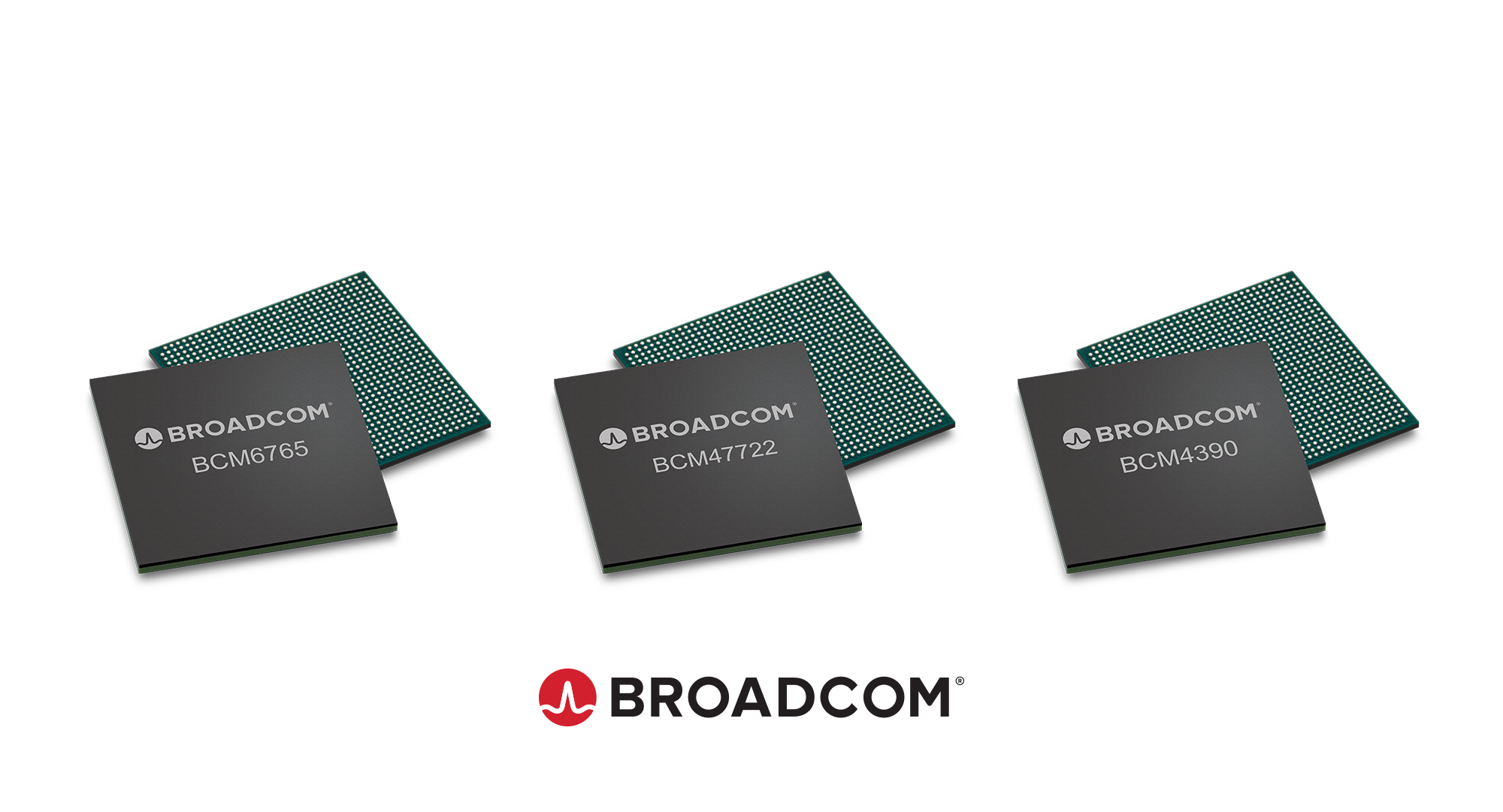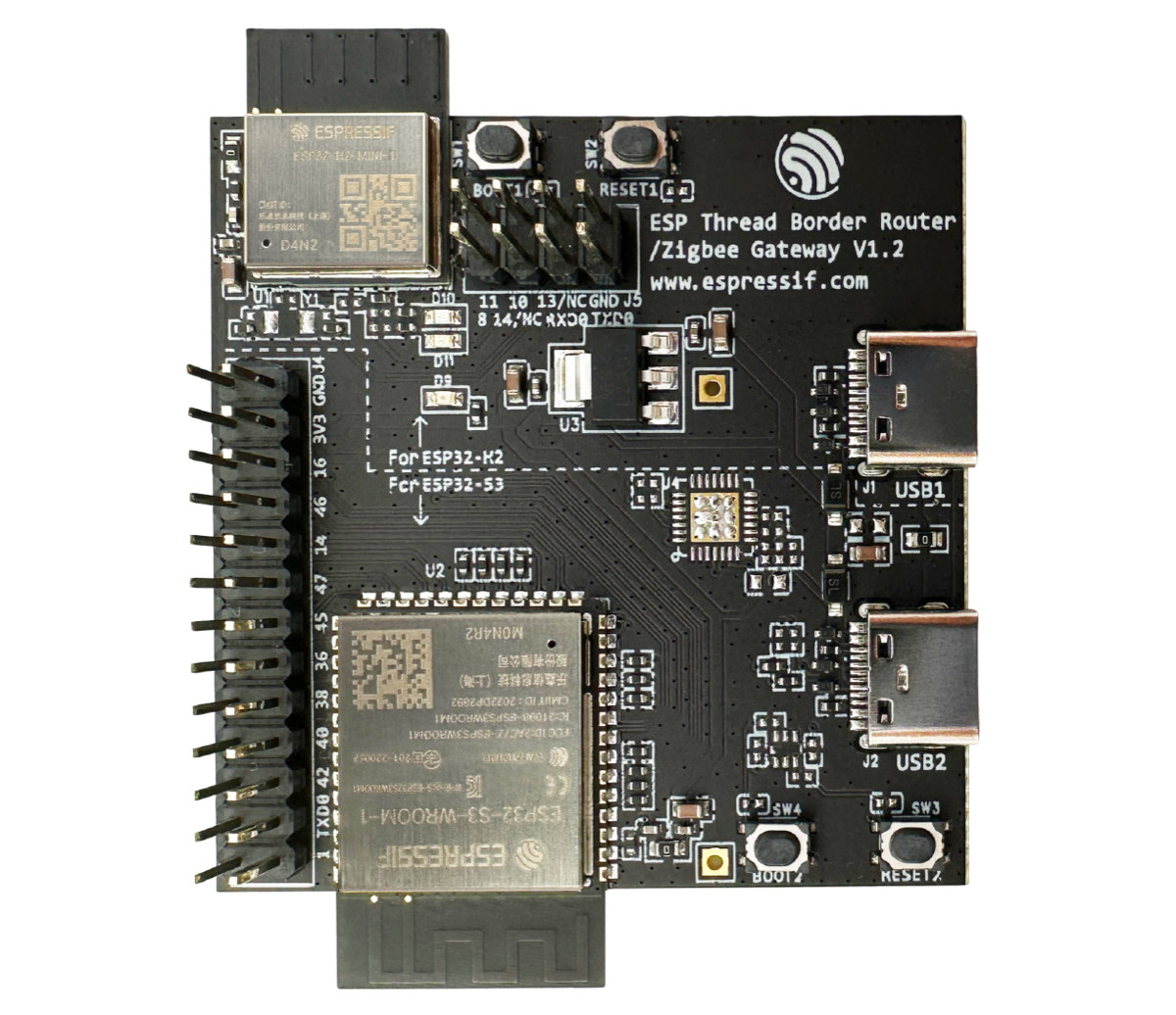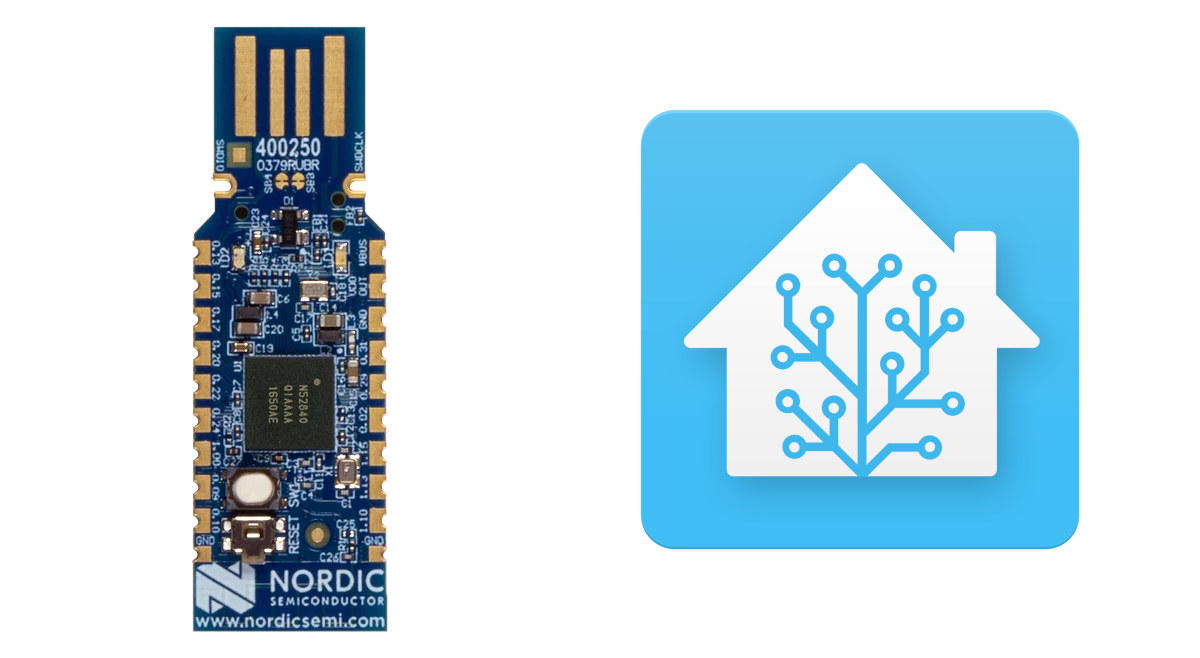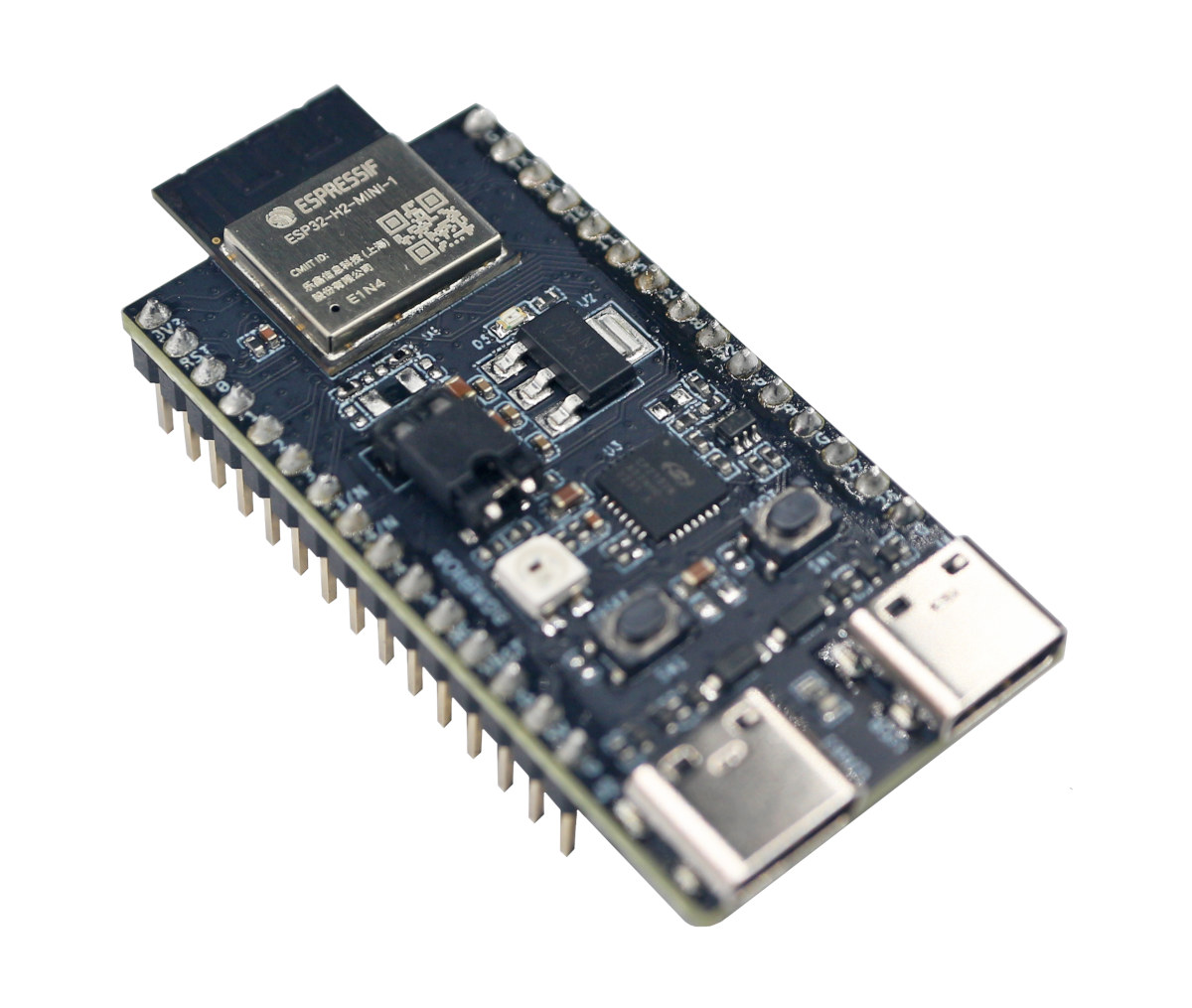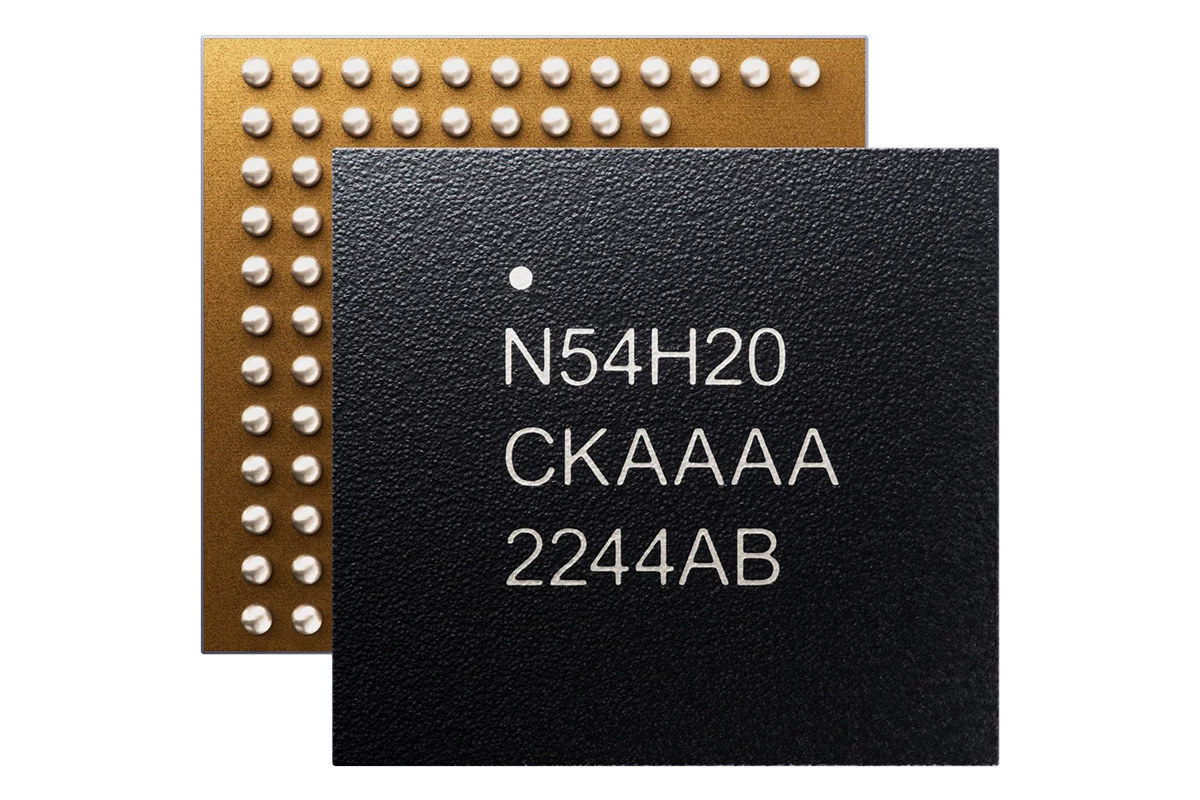SMLIGHT SLZB-06M is a Zigbee 3.0 to Ethernet, PoE, USB, or WiFi adapter designed to work with multi-vendor software systems such as Zigbee2MQTT and Home Assistant ZHA. This will let you integrate any supported Zigbee devices into smart home automation systems like Home Assistant, OpenHub, or HomeSeer. The SLZB-06M is a variant of the SLZB-06 Zigbee PoE adapter introduced last year with the main difference being the Zigbee chip as the new model is equipped with Silicon Labs EFR32MG21 microcontroller instead of Texas Instruments СС2652Р. An ESP32 WiFi and BLE chip is still used to work with peripherals such as the LAN8720 Ethernet chip and a CP2102N USB/UART converter chip. SMLIGHT SLZB-06M specifications: Wireless SoCs Silicon Labs EFR32MG21 Arm Cortex-M33 microcontroller @ 80 MHz with 352KB flash, 1024KB ROM for protocols and library functions, 96KB SRAM, integrated power amplifier, Bluetooth 5.2 Low Energy and 802.15.4 radios (Zigbee and Thread) Espressif […]
$19.90 nRF52840 Connect Kit board supports Bluetooth LE, NFC, Zigbee, and Thread connectivity
Makerdiary nRF52840 Connect Kit is a development board based on Nordic Semi nRF52840 multiprotocol wireless microcontroller with support for Bluetooth Low Energy, Bluetooth Mesh, NFC, Thread, Zigbee, 802.15.4, ANT, and 2.4 GHz proprietary connectivity. The nRF52840 Connect Kit comes in a compact form factor with a USB-C port for power and programming, a 64 Mbit QSPI flash, flexible power management, and a rich set of features. Makerdiary offers two versions, one with a chip antenna, and another with an external u.FL antenna. nRF52840 Connect Kit specifications: SoC – Nordic nRF52840 Arm Cortex-M4F WiSoC @ 64 MHz with 1 MB FLASH and 256 kB RAM, Arm TrustZone Cryptocell 310 security subsystem External Storage – 64-Mbit QSPI flash Wireless Connectivity (on-chip) Bluetooth 5, Bluetooth Mesh IEEE 802.15.4 radio for Zigbee and Thread ANT, 2.4GHz proprietary On-chip NFC-A tag Antenna – On-board 2.4GHz chip antenna or u.FL connector for external antenna USB – […]
Zvidar Z-GW-V01 Smart Gateway runs Home Assistant on Allwinner A133 processor
Shenzhen Zvidar Technologies’ Z-GW-V01, also known as the Zvidar Smart Gateway is a single board computer powered by an Allwinner A133 quad-core Cortex-A53 processor and running Ubuntu with the Home Assistant open-source automation framework. The SBC provides Gigabit Ethernet, WiFi 5, and Bluetooth connectivity by default, but also supports plenty of optional wireless modules with Z-Wave, Zigbee, Thread/Matter, LoRa, or 4G LTE connectivity that are either soldered to the board connected by a mini PCIe socket. The board also includes a few USB ports, and it’s apparently possible to connect a 7-inch display and/or audio interfaces if needed. Zvidar Smart Gateway (Z-GW-V01) specifications: SoC – Allwinner A133 quad-core Cortex-A53 processor @ up to 1.6GHz with Imagination PowerVR GE8300 GPU with support for OpenGL ES3.2, Vulkan 1.1, OpenCL 1.2 System Memory – 1GB RAM (option for 512MB, 2GB, or 4GB) Storage – 8GB eMMC flash (option for 4GB, 16GB, or 32GB), […]
Broadcom unveils 2nd generation WiFi 7 chipsets: BCM6765, BCM47722, BCM4390
Broadcom has announced its second generation WiFi 7 chipsets: the BCM6765 residential WiFi 7 access point chip, the BCM47722 enterprise WiFi 7 access point chip with dual IoT radios that support simultaneous operation for Bluetooth Low Energy (BLE), Zigbee, Thread, and Matter protocols, and the BCM4390 low-power Wi-Fi 7, Bluetooth, and 802.15.4 combo chip designed for use in mobile devices. This follows the introduction of Broadcom’s first WiFi 7 chipsets in April 2022 with residential and enterprise WiFi 7 access point chips, and a WiFi 7 client chip, but the second generation access point chipsets support 320 MHz 2-stream Wi-Fi operation and add extra features, and the BCM4390 optimized costs bringing WiFi 7 to lower-prices phones and devices. BCM6765 residential Wi-Fi access point chip highlights: CPU – Quad-core ARMv8 CPU with 10Gbps Ethernet PHY WiFi 7 Dual 2×2 tri-band (2.4, 5, and 6 GHz) capable radios that support simultaneous operation […]
Espressif ESP Thread Border Router board combines ESP32-H2 & ESP32-S3 wireless chips
Espressif Systems has launched the ESP Thread Border Router/Zigbee Gateway board based on ESP32-H2 (802.15.4) and ESP32-S3 (WiFi + BLE) modules following the contention of the Thread Interoperability Certificate V1.3 for the board and associated ESP Thread Boarder Router SDK built on top of the ESP-IDF framework and the open-source OpenThread protocol stack. The ESP Thread Border Router supports the protocol functions of the 1.3 Thread standard such as bidirectional IPv6 connectivity, Service Discovery Delegate, Service Registration Server, Multicast Forwarding, NAT64, and more, as well as product-level features such as a Web GUI for device configuration, automatic RCP (Radio Co-Processor) upgrade, RF coexistence, and so on. ESP Thread Border Router/Zigbee Gateway board specifications: Wireless modules ESP32-S3-WROOM-1 wireless module SoC – ESP32-S3 dual-core Tensilica LX7 microcontroller @ 240 MHz with 2.4 GHz 802.11n WiFi 4 and Bluetooth 5.0 LE connectivity Memory – 2MB PSRAM Storage – 4MB SPI flash PCB antenna […]
zigpy-zboss library makes Nordic Semi nRF52840 Zigbee dongles compatible with Home Assistant
zigpy-zboss is a Python library that adds support for Nordic Semiconductor nRF52840 modules to zigpy open-source Python Zigbee stack project, as well as other Network Co-Processor radios that run firmware based on ZBOSS Open Initiative (ZOI). This enables integration with compatible Zigbee gateway implementations such as Home Assistant’s ZHA integration component and allows users to directly control Zigbee devices from a wide range of manufacturers such as IKEA, Philips Hue, SmartSung SmartThings, ITEAD SONOFF, Xiaomi Aqara, and others. Home Assistant’s ZHA integration already worked with Zigbee dongles based on Silicon Labs Mighty Gecko EFR32MG21 or Texas Instruments CC2652P microcontrollers, but now it’s possible to use nRF52840 dongles and development as Zigbee Coordinators thanks to the zigpy-zboss library. The zigpy-zboss ZBOSS radio library for zigpy source code and resources can be found on GitHub, but note that this is still an unofficial and experimental port, so testers need to manually […]
ESP32-H2-DevKitM-1 ESP32-H2 development board launched for $10
Espressif Systems unveiled the ESP32-H2 Bluetooth 5.2 LE & 802.15.4 RISC-V microcontroller in August 2021, but the ESP32-H2-DevKitM-1 development board based on the ESP32-H2-MINI-1 module has only been selling on the official Espressif’s Aliexpress store for $9.90 for a few weeks. The ESP32-H2-DevKitM-1 development board allows the development of applications with Bluetooth 5.2 LE, Zigbee, Thread, and/or Matter connectivity, features two USB Type-C ports, Boot & Reset buttons, and RGB LED, and two rows of 15 pins exposing all I/Os from the ESP32-H2-MINI-1 module. ESP32-H2-DevKitM-1 specifications: Wireless module – ESP32-H2-MINI-1 MCU – Espressif Systems ESP32-H2 32-bit RISC-V microcontroller at up to 96 MHz with 320 KB SRAM, 128 KB ROM, 4 KB LP memory, Bluetooth 5.2 LE/Mesh and 802.15.4 (Zigbee/Thread/Matter) radios. Storage – 4MB flash storage (E1N4 on the photo above should mean 4MB, but there are also ESP32-H2-MINI-1 modules with 1MB and 2MB flash) PCB antenna Dimensions – 13.2×16.6×2.4 […]
Nordic Semi nRF54H20 Cortex-M33 + RISC-V wireless SoC supports Bluetooth 5.4, LE Audio, Bluetooth mesh, Thread, Matter, and more
Nordic Semi nRF54H20 is a 320 MHz multiprotocol wireless SoC with several Arm Cortex-M33 and RISC-V cores, support for Bluetooth 5.4 and greater with features like LE Audio and Bluetooth mesh, as well as Thread, Matter, and so on. It is the first part of the fourth generation nRF54 family manufactured with a 22nm process, and its application processor doubles the processing power (2x CoreMark) of the Arm Cortex-M33 application core in the nRF5340 SoC and embeds up to 2MB flash, 1MB SRAM. nRF54H20 preliminary specifications and highlights: CPU Application core – Arm Cortex-M33 @ up to 320 MHz with 2 MB Flash + 1MB SRAM Network core – Arm Cortex-M33 Several RISC-V cores (for low power?) Wireless Bluetooth 5.4 LE with direction-finding, Bluetooth mesh, LE audio, etc… 802.15.4 radio for Thread, Matter -100 dBm RX sensitivity @ 1 Mbps for Bluetooth LE Up to 10 dBm TX power New […]


